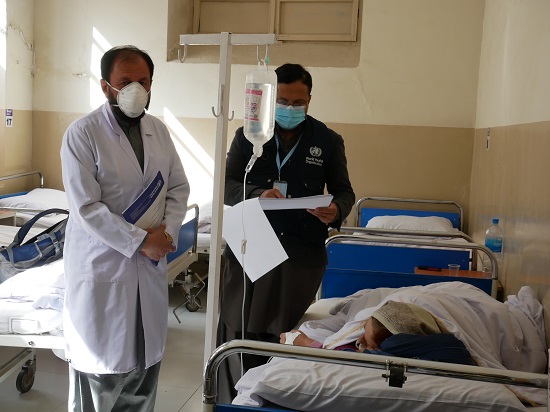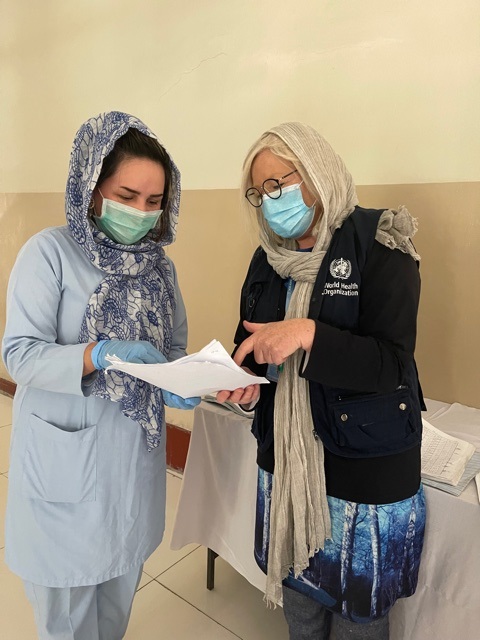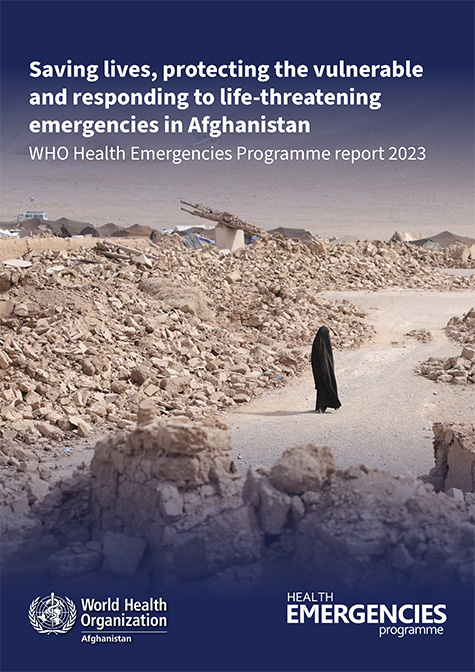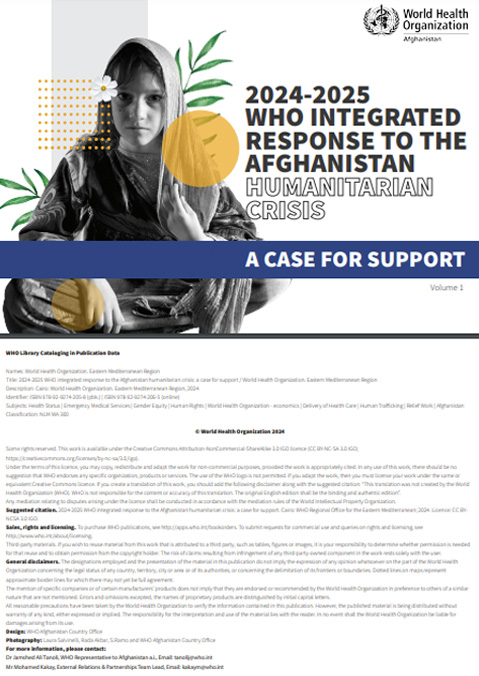
14 November 2021 – At 70 years of age, with life getting ever more difficult and food more scarce, an attack of watery diarrhoea was enough to tip Amina into critical condition. In desperation, Rana, the junior wife in their household of 12, brought Amina to the National Infectious Diseases hospital hoping for some help.
And help there was. As soon as Amina arrived, she was assessed as severely dehydrated, and treatment began. “This is the one shining light in a very dark time” said Rana as she stood by Amina’s bedside.
Although none of the staff have been paid for 3 months, the doctors and nurses have been coming every day, simply because, as the hospital director, Dr Asadullah Esmat, said ‘This is our job. We are trained for that. Our staff say to us, ‘No problem, I am working for the people of Afghanistan’
In early September, just a few weeks after the change in political regime, people began arriving at the hospital with acute watery diarrhoea. Numbers climbed quickly, peaking at over 100 people per day. Many people had delayed seeking care, not certain if help would still be available, and arrived severely dehydrated, needing urgent rehydration.
The hospital was already crowded with people needing advanced care for the many infectious diseases challenging the people of Afghanistan – meningitis, tuberculosis, HIV, Crimean-Congo haemorrhagic fever, COVID-19 to name a few. But it was essential to isolate and treat everyone who had acute watery diarrhoea to save lives.
“We emptied out several wards, discharging those patients who were well enough, putting others in other parts of the hospital, even the corridors. We needed one female and one male isolation ward to comply with the new rules.” said Dr Esmat.
 WHO was able to supply critical protective equipment for health workers, such as gloves, masks and lifesaving treatment such as intravenous rehydration fluids. Since mid-August, donors have responded to WHO appeals for help and over 240 metric tonnes of medical supplies to help with all manner of health challenges, including acute watery diarrhoea have been airlifted to Afghanistan via 14 flights. Supplies are still desperately needed but more flights are coming.
WHO was able to supply critical protective equipment for health workers, such as gloves, masks and lifesaving treatment such as intravenous rehydration fluids. Since mid-August, donors have responded to WHO appeals for help and over 240 metric tonnes of medical supplies to help with all manner of health challenges, including acute watery diarrhoea have been airlifted to Afghanistan via 14 flights. Supplies are still desperately needed but more flights are coming.
The supplies and the commitment of the health workers have paid off in lives saved. “Overall, we treated around 3000 patients and not one of them died. Thanks to the supplies and support we received from WHO, who came and helped in the earliest stage of the outbreak, we were able to provide the best care possible, even in these difficult circumstances,” said Professor Mohammad Murad Mamozai, the hospital’s medical director.
The numbers of acute watery diarrhoea cases appear to be declining; fewer people are coming to hospital needing treatment for this, and numbers elsewhere are falling. But the outbreak did spread to 5 provinces and more than 3339 people have been infected. Work to identify every case, ensure water and sanitation measures are taken, such as chlorination of water sources, needs to be done to prevent further infection.
All this depends on regular medical supplies coming into the country via WHO and other UN agencies. The other critical factor is the work being done by skilled and committed Afghan professionals, who are still turning up to work, despite still waiting to be paid.
As Leda, a 26-year-old nurse working in the infectious disease hospital explained when asked how she stays motivated, “I wanted to be a nurse ever since I was a little girl. Yes, we don’t have a salary, but I love what I do.“













